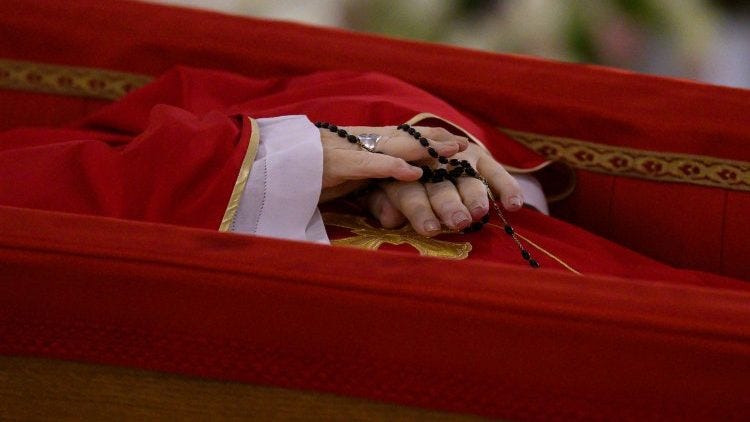I think Pope Francis was just the man the Catholic Church needed. Rome has had more than a century of saintly, often scholarly, charismatic men as pope. While a great blessing, it has also left Catholics with an unrealistic view of the papal office. Though a great man in his own right, I see Pope Francis as a helpful “regression to the mean,” if you will. Hopefully, this will help Catholics personally and institutionally to take a realistic (by which I mean more humble) view of the papacy.
There is no question that there is—and needs to be—such a thing as Roman primacy. Just as reason governs the body, the parents govern the family, and the chief executive governs the state, both divine revelation and natural law demand a visible primacy in the Church on the parochial, diocesan, regional, and, yes, universal levels (see Ravenna Document).
Both East and West embrace parochial and diocesan primacies. Where we diverge is the emphasis we place on the other levels. The Orthodox tend to embrace more fully regional primacy, albeit at the expense of its universal forms (papacy, but also the Pentarchy). As for Catholics, they flip the script, stressing universal primacy at the expense of both the Pentarchy and the regional forms of governance.
Circling back to Pope Francis, I think he made some good steps towards fostering regional primacy in the Catholic Church. To be sure, he was not wholly successful (I'm looking at you, German Catholic Church!). But first steps are always faltering.
Unfortunately, what we find endearing in a toddler, we (not wholly unreasonably) find distressing in an institution. This is especially the case in one as old, venerable, and powerful as the Catholic Church.
That said, I think the late Pope moved the Church of Rome in a good direction. I know his example has had a positive influence on my priestly ministry.
To walk alongside the sinner, to be a shepherd who “smells like his sheep,” is hard and often uncomfortable. It invites criticism (some just, some less so), and even scorn and derision.
But what other choice is there?
As we see in the life of the late pontiff, I must serve the people God brings me, the way they are. Where they are in their lives must be my starting point as I try and lead—or at least point—them to Christ and the Kingdom of God.
The next step for the gay man, the transwoman, the married couple, the teenager, the widowed, are all different. The destination is the same, yes. But the next step for this one is often not only radically different from that of another, but not infrequently also wrong and even harmful.
All of this, I think, Pope Francis seemed to understand intuitively.
Certainly, he lacked the intellectual polish of his immediate predecessors. However, to criticize a man for not being someone else is not only unjust and an offense against charity, but it also reflects a certain ontological pride.
God created Jorge Mario Bergoglio for His glory and the salvation of the world. If, at times, Pope Francis rubbed some people the wrong way or unsettled them, well, so what? If he wasn't the kind of pope some wanted, who cares? I'm not everyone's cup of tea, and neither are you.
Whatever others think of us—and these opinions matter, if not as much (or in the way) as we (or they) think—is not ultimately the point, is it?
We each of us loved by the same God Who loved Pope Francis. And, like him, we are called to love one another.
And, also like him, in ways great and small, we all stumble now and then.
If I allow myself to see it as such, your failure is for me (and mine for you) always an invitation to self-reflection. This may bear fruit in a fraternal correction. But it must ALWAYS bear fruit in my repentance and willingness to forgive.
So that, my friend, is what I think about Pope Francis. I ask God to make his memory eternal, and I thank God for his witness to Christ and the Gospel.



Memory Eternal.
Thank you, Fr. Gregory, for this very insightful article!